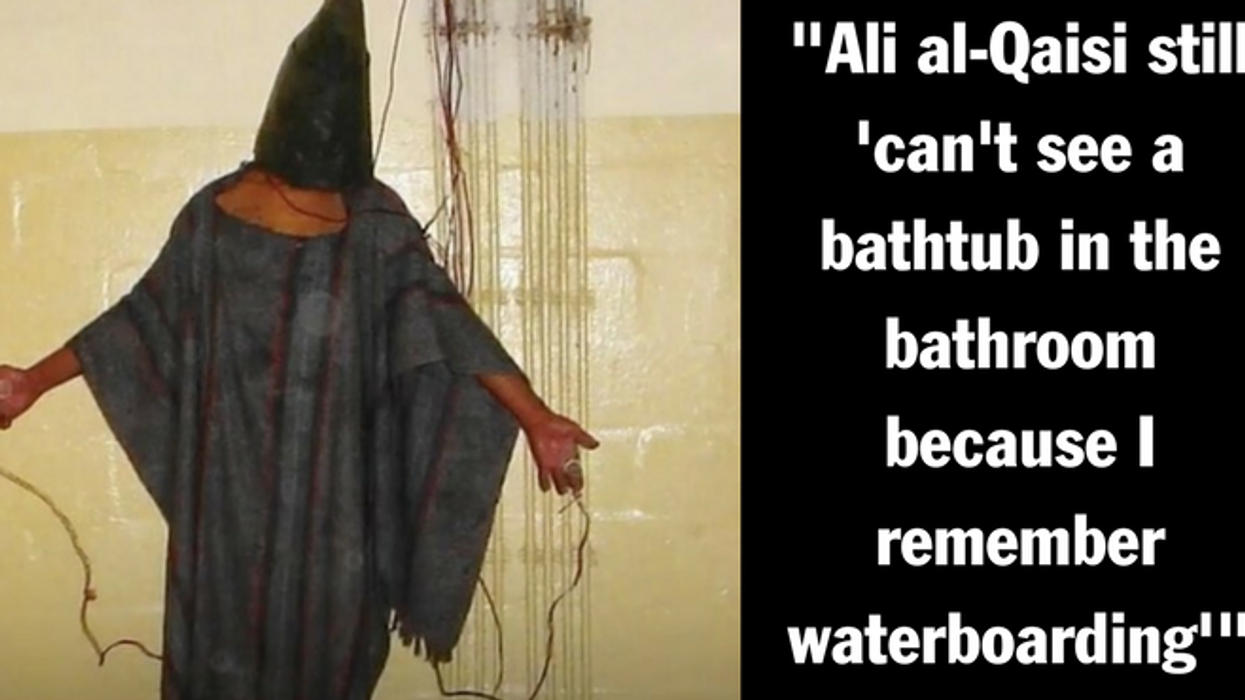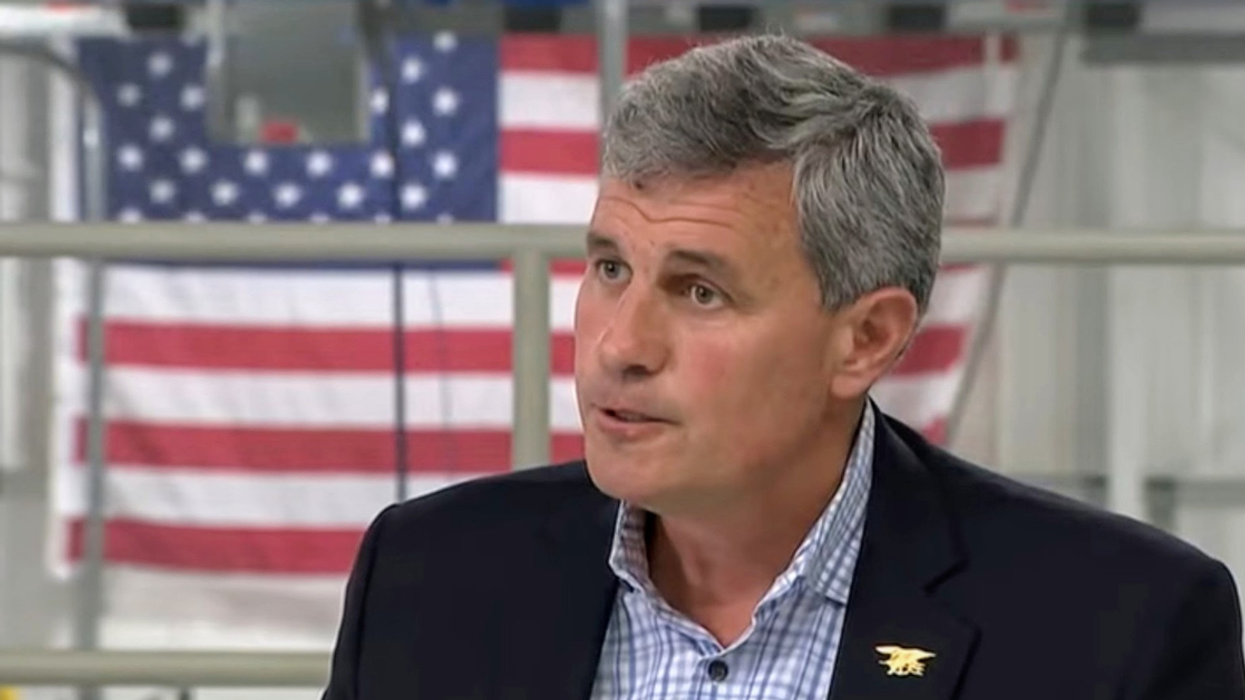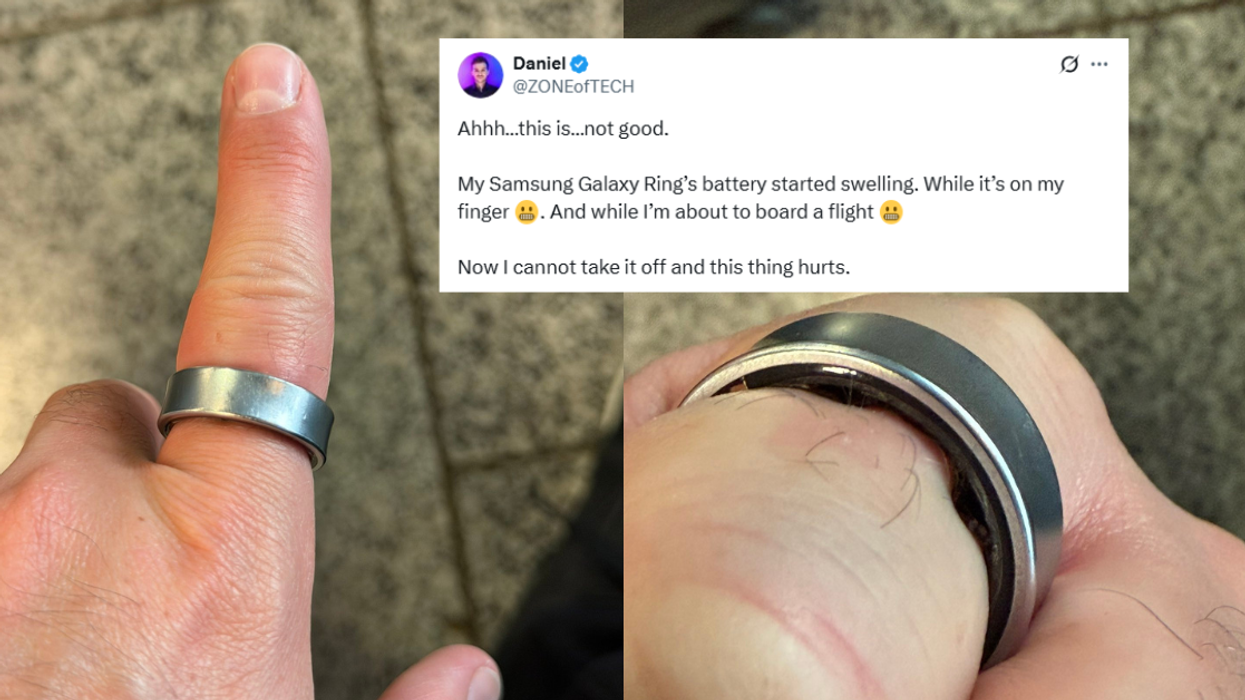Fifteen years after the United States invaded Iraq, a prisoner who was wrongfully detained and subsequently tortured at the notorious Abu Ghraib prison is sharing his story. Note: what you are about to read is disturbing.
Ali al-Qaisi was captured in Iraq in 2003 during a CIA operation and was subject to "enhanced interrogation" methods at Abu Ghraib prison, which has now become synonymous with torture employed by the United States in the "War on Terror."
Since stories of torture used at Abu Ghraib began circulating during the latter half of the Bush Administration, government officials and civil rights advocacy groups have clashed over what many call blatant violations of the Geneva Convetion, which outlaws torture. Al-Qaisi recalls being subject to various means of torture, including waterboarding, electrocution and being urinated upon by American military guards.
The Geneva Convention was a series of international diplomatic meetings that produced a number of agreements, in particular the Humanitarian Law of Armed Conflicts, a group of international laws for the humane treatment of wounded or captured military personnel, medical personnel and non-military civilians during war or armed conflicts. The agreements originated in 1864 and were significantly updated in 1949 after World War II.
More than a decade after his arrest, al-Qaisi, whom the public would come to learn was an innocent resident of Baghdad, the Iraqi capital, had committed no crime, and has begun sharing his account of the egregious human rights violations that occurred at the now infamous prisoner of war camp.
"I'm spending sleepless nights thinking about the agony I went through," al-Qaisi once said. "I even have recurring nightmares that I'm in my cell at Abu Ghraib, cell 49 as they called it, being tortured at the hands of the people of a great nation that carries the torch of freedom and human rights."
In his account, al-Qaisi explained that the inhumane treatments he received at Abu Ghraib still have profound effects on his life today.
His accounts of how he was treated by Americans, on whom the world relies as beacons of hope, justice, and freedom, are as horrifying as they are almost unbelievable.
"I can't see a bathtub in the bathroom because I remember waterboarding," al-Qaisi told The New Arab in 2015. "The pictures only show 5% of what happened to us. I wasn't a military commander or a government official. I was just a resident of Baghdad, where I grew up, and just like any other Iraqi I was against the US invasion and I spoke out against it. My picture was published in a news article with my complaints. The Americans then raided my home and arrested me. They threw me into a car and put a sack and my shoes on my head."
When he arrived at Abu Ghraib, the treatment he received can best be described as an antithesis of "America values."
"It was in a filthy traditional toilet overflowing with water and waste. There were two interrogators with a translator, they questioned me thoroughly for around an hour and a half. They asked me to collaborate with them and give them names of people who could pose a threat."
Al-Qaisi explained that he knew nothing about any anti-American activity, which prompted his captors to increase the harshness of information extraction.
"They said they did not care and ask me to give them any names - even the names of people I hated. They told me 'just give us any old names and we'll help you out a lot'. They threatened to send me to Guantanamo Bay and to a place 'where dogs would be too disgusted to live. We walked through a long hallway and I could hear people screaming for help and dogs barking. They stopped me and took the sack off and undid my hands."
Al-Qaisi then recalled how he was forced to remove this clothes.
"I took it off and stood there in my underwear. They then told me to take everything off and I said no, so they took it off by force and tied up my hands and legs again. They ushered me along until we got to a staircase but I couldn't make it up the stairs so they started beating with the butts of their rifles, while screaming 'let's go' at me."
When he was unable to walk up a flight of stairs, he was beaten by American soldiers.
"They starting kicking me and beating me with their rifles so I had to crawl up the spiral staircase on my hands and knees for what seemed like hours. By the time we reached the top they had already begun throwing faeces at me and they were blasting a recording of the words 'execution, execution' in my ears over and over in English and Arabic."
He then said that he began to lose all sense of time.
"Possibly in the morning, an interrogator came into my cell and introduced himself to me, he spoke Arabic with a Levantine accent, and told me that he had questioned detainees in Palestine and Guantanamo Bay. They were constantly writing on my body, dowsing me in cold water as well as sticking the barrels of their guns and broomsticks into extremely sensitive places, which was very painful and had a severe psychological impact on me."
Things only got worse.
"For three days I was not given food and had cold water thrown at me - it was the end of December and the weather was freezing - and had loud recordings blasted into my ears. I reached the point of exhaustion that I could have fallen asleep while I was standing but they wouldn't let me."
According to al-Qaisi, female prisoners were shown no mercy, and were subjected to the same brutal tactics as their male counterparts.
"We could hear them screaming for help. But we were naked in our cells and all we could do was repeat Allahu Akbar. They didn't want the world to see what was really going on there. The pictures only show five percent of what happened to us."
Al-Qaisi was released when the media caught wind of what was really going on at Abu Ghraib. This story has enormous implications for today's politics in the United States. President Donald Trump's pick to lead the CIA, Gina Haspel, was one of the overseers of the program, and is once again igniting the debate over how the United States should treat suspected "enemy combatants".








 Lemon Juice 80S GIF
Lemon Juice 80S GIF  Michael Myers
Michael Myers  Give Thanks Eating GIF by I Heart Guts
Give Thanks Eating GIF by I Heart Guts  Gordon Ramsay Fox GIF by HULU
Gordon Ramsay Fox GIF by HULU  baking ann b. davis GIF by HULU
baking ann b. davis GIF by HULU 






 @timleesblee/TikTok
@timleesblee/TikTok @timleesblee/TikTok
@timleesblee/TikTok @timleesblee/TikTok
@timleesblee/TikTok @timleesblee/TikTok
@timleesblee/TikTok @timleesblee/TikTok
@timleesblee/TikTok @timleesblee/TikTok
@timleesblee/TikTok @timleesblee/TikTok
@timleesblee/TikTok @timleesblee/TikTok
@timleesblee/TikTok @timleesblee/TikTok
@timleesblee/TikTok @timleesblee/TikTok
@timleesblee/TikTok @timleesblee/TikTok
@timleesblee/TikTok @timleesblee/TikTok
@timleesblee/TikTok
 @skylr.m/TikTok
@skylr.m/TikTok @skylr.m/TikTok
@skylr.m/TikTok @skylr.m/TikTok
@skylr.m/TikTok @skylr.m/TikTok
@skylr.m/TikTok @skylr.m/TikTok
@skylr.m/TikTok @skylr.m/TikTok
@skylr.m/TikTok @skylr.m/TikTok
@skylr.m/TikTok @skylr.m/TikTok
@skylr.m/TikTok @skylr.m/TikTok
@skylr.m/TikTok @skylr.m/TikTok
@skylr.m/TikTok @skylr.m/TikTok
@skylr.m/TikTok @skylr.m/TikTok
@skylr.m/TikTok @skylr.m/TikTok
@skylr.m/TikTok @skylr.m/TikTok
@skylr.m/TikTok @skylr.m/TikTok
@skylr.m/TikTok